| dc.contributor | Adams, Marina | |
| dc.contributor | Baur, Ruprecht S. | |
| dc.contributor | Blei, Dagmar | |
| dc.contributor | Busch-Lauer, Ines | |
| dc.contributor | Centero García, Anja | |
| dc.contributor | Dobstadt, Michael | |
| dc.contributor | Fimmel, Silke | |
| dc.contributor | Funke, Manuela | |
| dc.contributor | Großmann, Uta | |
| dc.contributor | Hecker, Sarah-Larissa | |
| dc.contributor | Jung, Matthias | |
| dc.contributor | Krumm, Hans-Jürgen | |
| dc.contributor | Middeke, Annegret | |
| dc.contributor | Nimz, Katharina | |
| dc.contributor | Oechel-Metzner, Claudia | |
| dc.contributor | Spaniel-Weise, Dorothea | |
| dc.contributor | Zeuner, Ulrich | |
| dc.contributor | Zlatanova, Desislava | |
| dc.contributor | Zuchewicz, Tadeusz | |
| dc.contributor.editor | Dobstadt, Michael | |
| dc.contributor.editor | Funke, Manuela | |
| dc.contributor.editor | Middeke, Annegret | |
| dc.contributor.editor | Zuchewicz, Tadeusz | |
| dc.date.accessioned | 2022-06-17T08:26:51Z | |
| dc.date.available | 2022-12-19T00:10:07Z | |
| dc.date.issued | 2022 | |
| dc.identifier.uri | https://doi.org/10.17875/gup2022-1985 | |
| dc.format.extent | 209 | |
| dc.format.medium | Print | |
| dc.language.iso | ger | |
| dc.relation.ispartofseries | Materialien Deutsch als Fremd- und Zweitsprache | |
| dc.relation.haspart | 3/isbn-978-3-86395-546-5.1 | |
| dc.relation.haspart | 3/isbn-978-3-86395-546-5.2 | |
| dc.relation.haspart | 3/isbn-978-3-86395-546-5.3 | |
| dc.relation.haspart | 3/isbn-978-3-86395-546-5.4 | |
| dc.relation.haspart | 3/isbn-978-3-86395-546-5.5 | |
| dc.relation.haspart | 3/isbn-978-3-86395-546-5.6 | |
| dc.relation.haspart | 3/isbn-978-3-86395-546-5.7 | |
| dc.relation.haspart | 3/isbn-978-3-86395-546-5.8 | |
| dc.relation.haspart | 3/isbn-978-3-86395-546-5.9 | |
| dc.relation.haspart | 3/isbn-978-3-86395-546-5.10 | |
| dc.relation.haspart | 3/isbn-978-3-86395-546-5.11 | |
| dc.relation.haspart | 3/isbn-978-3-86395-546-5.12 | |
| dc.relation.haspart | 3/isbn-978-3-86395-546-5.13 | |
| dc.relation.haspart | 3/isbn-978-3-86395-546-5.14 | |
| dc.relation.haspart | 3/isbn-978-3-86395-546-5.15 | |
| dc.relation.haspart | 3/isbn-978-3-86395-546-5.16 | |
| dc.relation.haspart | 3/isbn-978-3-86395-546-5.17 | |
| dc.rights.uri | http://creativecommons.org/licenses/by-sa/4.0/deed.de | |
| dc.subject.ddc | 430 | |
| dc.title | DaF/DaZ in der ostdeutschen Transformationsgesellschaft – das Beispiel Dresden | |
| dc.title.alternative | Festschrift für Prof. Dr. Dagmar Blei | |
| dc.type | anthology | |
| dc.price.print | 38,00 | |
| dc.identifier.urn | urn:nbn:de:gbv:7-isbn-978-3-86395-546-5-5 | |
| dc.description.print | Softcover, 17x24 | |
| dc.subject.division | surveyed | |
| dc.relation.isbn-13 | 978-3-86395-546-5 | |
| dc.identifier.intern | isbn-978-3-86395-546-5 | |
| dc.bibliographicCitation.volume | 109 | |
| dc.subject.bisac | LAN000000 | |
| dc.subject.vlb | 563 | |
| dc.subject.bic | C | |
| dc.description.abstractger | Obwohl Deutsch als Fremd- und Zweitsprache (DaF/DaZ) ein verhältnismäßig junges Fach ist, ist es doch alt genug, um bereits über drei Geschichten zu verfügen: eine ostdeutsche, eine westdeutsche und eine gesamtdeutsche. Die Erforschung dieser drei Geschichten
samt ihrer spannungsreichen (Nicht-)Bezüge und Bezugnahmen hat gerade erst begonnen. Im vorliegenden Band liegt der Fokus auf dem DaF/DaZ-Standort Dresden und seiner Fachvertreterin Prof. Dr. Dagmar Blei, die diesen Übergang maßgeblich gestaltet hat; ihr
ist dieser Band gewidmet. Anhand von berufsbiographischen Reflexionen ihrer ehemaligen Mitarbeiter*innen sowie von Rückblicken ehemaliger Kolleg*innen werden nicht nur der Übergang von der ostdeutschen Teilgeschichte in die gesamtdeutsche Geschichte des
Faches, sondern auch einige seiner Teilbereiche exemplarisch beleuchtet. Dabei geht es nie nur um die Vergangenheit, sondern immer auch um die Zukunftsperspektiven des Faches an der TU Dresden und darüber hinaus. | |
| dc.description.abstracteng | Although German as a Foreign and Second Language (DaF/DaZ) is a relatively young subject, it is old enough to already have three histories: one East German, one West German, and one all-German. The exploration of these three histories
including their tense (non)references and references has only just begun. In the present volume, the focus is on the DaF/DaZ location Dresden and its subject representative Prof. Dr. Dagmar Blei, who played a decisive role in shaping this transition.
this volume is dedicated to her. On the basis of professional biographical reflexions of her former staff members as well as retrospectives of former colleagues, not only the transition from the East German partial history to the all-German history of the
The subject's transition from the East German partial history to the history of the whole of Germany, but also some of its sub-areas, are illuminated in an exemplary manner. The focus is never only on the past, but also on the future perspectives of the subject at the TU Dresden and beyond.
Translated with www.DeepL.com/Translator (free version) | |
| dc.notes.vlb-print | lieferbar | |
| dc.intern.doi | 10.17875/gup2022-1985 | |
| dc.identifier.purl | http://resolver.sub.uni-goettingen.de/purl?univerlag-isbn-978-3-86395-546-5 | |
| dc.format.chapters | 17 | |
| dc.intern.asin | 3863955463 | |
| dc.subject.thema | C | |



